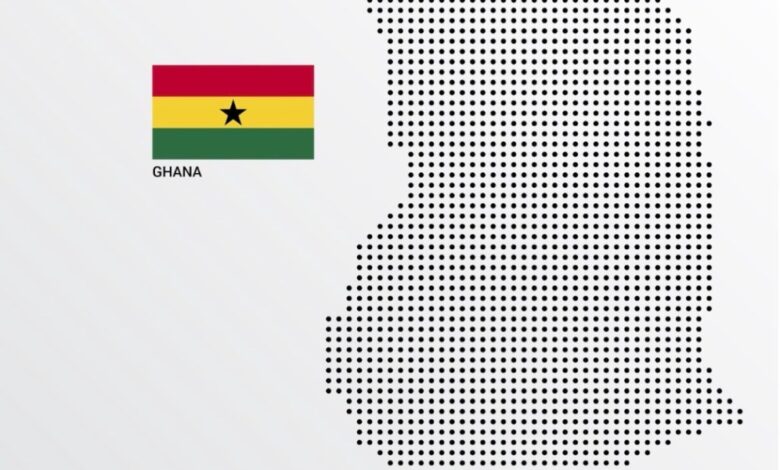Ghana’s cyber bill aims higher standards without losing public trust

Ghana’s Cyber Security Authority has proposed updates to the 2020 Act that widen its remit and tighten procedures. The draft sets clearer duties for providers and professionals, expands registration and accreditation, and adds investigatory powers tied to cybercrime. The move signals a shift toward sharper enforcement and more accountable incident handling across banks, telcos, and critical systems.
Ghana’s Cyber Security Authority has proposed updates to the 2020 Act that widen its remit and tighten procedures. The draft sets clearer duties for providers and professionals, expands registration and accreditation, and adds investigatory powers tied to cybercrime. The move signals a shift toward sharper enforcement and more accountable incident handling across banks, telcos, and critical systems.
What the Proposal Tries to Fix
Supporters of the amendment argue that it is necessary to close gaps exposed by rising fraudulent activity and platform abuse. The goal is to strengthen the operational framework: establishing clear protocols for handling digital evidence, creating a single national hub for incident coordination, and speeding up reporting from private firms. While the 2020 Act provided a solid foundation, practical experience has shown that several key areas need regulatory tightening.
To assess this draft constructively, it helps to use a consumer lens. The protection standards should mirror the transparency and accountability found in highly regulated sectors like digital payments and gaming, where user safety relies on predictable rules. Specifically, strong user protection requires clear licensing, fee transparency, solid withdrawal terms, and clean verification steps. For example, experts create matrices to rank crypto platforms, such as those detailing Litecoin betting sites by licensing status, clear fees, and fast payout speeds. Treat this criteria-first approach—focused on clear disclosures and simple redress—as your reading guide for any tech bill. If the new rules make industry duties clearer, incident timelines faster, and user redress simpler, the public gains tangible safety improvements.
This checklist helps set the standard for the entire draft. Looking at it this way, the analysis by technology experts, like the helpful tips and notes from the Authority, reads like steps that can be taken right away to make oversight, duties, and enforcement times better. The Cyber Security Authority’s mandate is to regulate, prevent, and respond to threats for a secure digital Ghana. On the government side, the Cyber Security Authority outlines the mandate, consultation steps, and contact points for formal comments (look to the CSA website for official updates).
Draft discussions highlight timelines for reporting breaches, standardized incident formats, and minimum logging requirements across banks, ISPs, and critical utilities. Proposals also float tiered accreditation so micro providers face lighter checks, mandatory staff training for high-risk roles, and clear escalation paths linking company SOCs, sector CERTs, and the national CSIRT.
Where Public Pushback is Building
Civil society groups and legal commentators are focusing on balancing authority with oversight. Calls center on tightening broad data-access language, defining prosecutorial powers clearly within the regulator’s role, and refining definitions that might otherwise place undue burden on small practitioners or nonprofits without a clear security gain. This dialogue is essential; it does not dismiss the damage caused by scams or infrastructure attacks, but seeks to ensure drafting is precise, judicial oversight is explicit for intrusive steps, and penalties remain proportionate.
It is echoed by the local newsrooms also. Editorials pay attention to the need for clear enforcement guidelines and fundamental rights, and they advocate for more transparent thresholds, improved reporting obligations, and education budgets that are proportional to the expansion of enforcement. For on-the-ground updates and community angles as the debate moves, follow constructive local coverage at MyNewsGH.
Concrete Fixes That Would Build Confidence
There is a workable middle path that protects users and earns public trust.
- Split roles with clarity. Keep standards, accreditation, and audits with the Authority. Leave arrests and prosecutions to existing law-enforcement units, with a formal protocol for joint operations.
- Lock due process into the statute. Require judicial warrants for content or device access, set tight time limits on data requests, and add user-notification rules where safe.
- Narrow key definitions. Define “cybersecurity services,” “critical information infrastructure,” and “emergency powers” with precision so volunteers, NGOs, and small vendors do not face enterprise-grade overhead without measurable benefit.
- Publish impact data. Commit to quarterly reporting on incidents, response times, complaints resolved, enforcement actions, and education outcomes. Numbers keep the focus on harm reduction and let Parliament judge what works.
What to Watch Before Parliament Moves
There are three pressure points that will end up shaping the final text.
Initially, the record of the consultation. Confidence will increase if the feedback from the public results in more stringent language on powers, cleaner warrants, and tiered duties based on the size of the organization.
Second, sanctions that are associated with speech. The remedies for misinformation, according to commentators, should center on targeted takedowns, counterspeech, and fines that are constitutionally sanctioned. You should anticipate a debate regarding defenses, thresholds, and intent.
Finally, the scope and cost of the accreditation. Compliance can become a barrier for smaller businesses if they are required to pay high licensing or fees without experiencing proportional gains. Managing that risk can be accomplished through the use of transitional windows, narrow exemptions, and tiered obligations.
Ghana needs stronger defenses and a rulebook people trust. The amendment opens that door. With sharper definitions, court-checked procedures, and public reporting, lawmakers can raise standards without dimming civic space.





